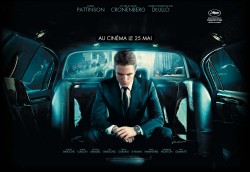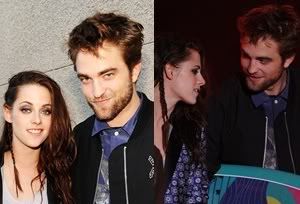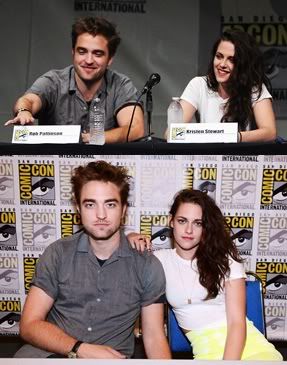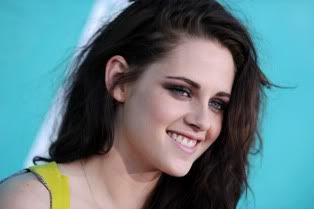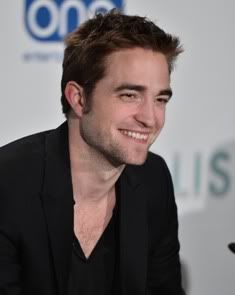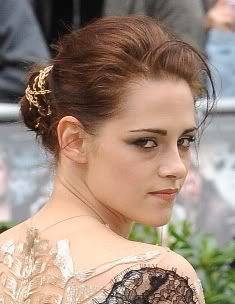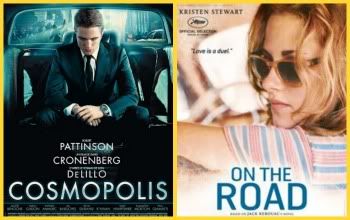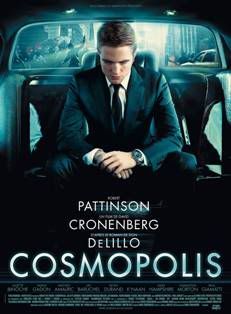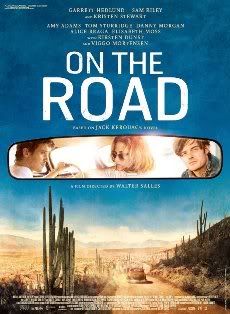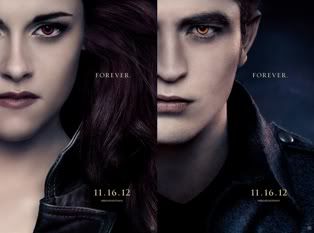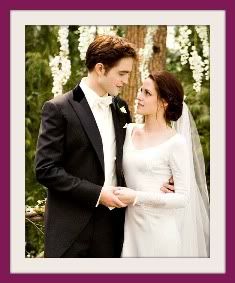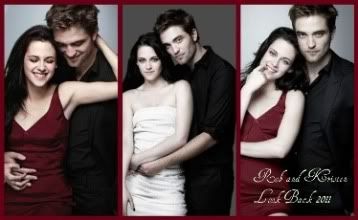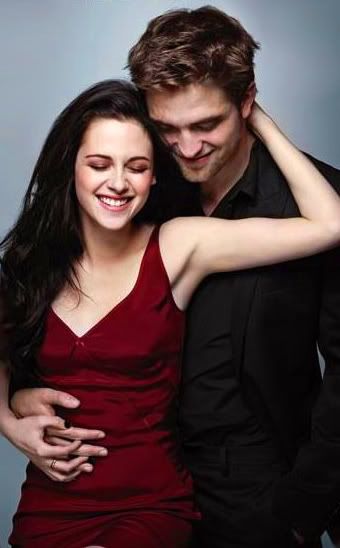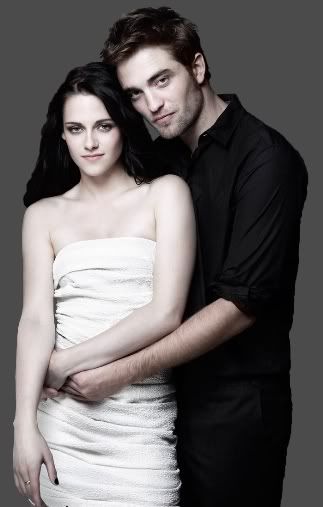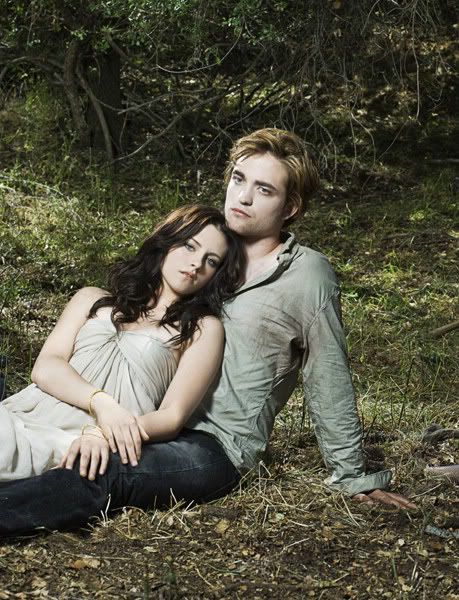Updated!! with the original interviews from the 'Cosmopolis' Production Notes - not translated anymore. Thank you Robsteners / RPLife
Cronenberg and DeLillo interviews - Rob mentions are bolded and underlined. Great read! DON'T DARE MISS THIS INTERVIEW! Warning for spoilers.
Were you familiar with Don DeLillo’s novel?
No. But I had read some of his other novels. I first read the screenplay David Cronenberg sent me, and then the novel. One is incredibly true to the other, it is faithful in a way that seems impossible, for a novel that see med impossible to adapt. But even before reading the book, what impressed me the most about the script was the quick-paced rhythm and the unrelenting tension.
What was it about this film that appealed to you the most?
Cronenberg, obviously! I have played in only a few films, and none of them came close to what I expected working with him would be like. I wasn’t disappointed… I knew he would be very creative, and that it would be a real experience. And I was appealed by the writing of the script, like a kind of long poem. And a mysterious poem too. Usually when you read a script, you quickly know what it is about, where it is going, how it will end, even if there might be unexpected or sophisticated twists and turns in the plot. But this time it
was completely different, the further I read, the less I could figure out where it was leading, and the more I wanted to be a part of it. It doesn’t fit any film genre whatsoever, it is in a league of its own.
When you first read the script, did you see yourself in the role, could you imagine what it would look like visually?
Not at all. The first time I spoke to David, it is exactly what I told him, that I didn’t visualize anything, and he thought it was a good thing. Besides, I think that at this point, he wasn’t thinking much ahead, it all evolved in a progressive, organic way, starting from the text, towards the many visual choices that shape the film. It is a living process. Even during the first week of shooting, we were all still wondering what the film would look like once finished. It was fascinating, I felt like the film was fashioning itself.
Now that it’s done, is the film much different from the script, or on the contrary did you stick to what was written?
It is hard to say, because the film acts on different levels. I’ve seen it twice, the first time I was amazed by its farcical side, which I knew was there during the shooting, but which was unexpectedly apparent. The second time, the gravity of what was at stake prevailed. Both times, there was an audience attending, but the reactions were wide-ranging, from laughter to tension over the dark side Cosmopolis also has. Despite its complexity, I was amazed by the way it reaches a wide range of emotions.
In your opinion, who is Eric Packer? How would you describe him?
To me, Eric is someone who feels like he belongs to another reality, who lives as if he was born on an other planet, and who tries to discover in which reality he should be living. In fact, he doesn’t understand the world as it is.
Yet he has enough understanding of the world to make a fortune in it.
Sure, but in a very abstract way. Banking, broking or speculating are disconnected activities, he has done well in them, not as a genuine specialist or a mastermind, but rather thanks to a kind of instinct, something much more mysterious, with the help of algorithms not unlike magical formulas. You can see in the film, as well as in the book, that his approach of financial data tends to project him in the future, so much so that he doesn’t know how to live in the present anymore. He probably grasps the workings of the real world somehow, but only in peculiar and obscure ways.
Did you talk about it with David Cronenberg?
A bit, yes, but he liked me to search for something unexplained and unexplainable. He particularly liked it when I played without really knowing what I was doing, and as soon as he felt that I was making up chains of cause and effect, or coming out with a logical explanation for Eric’s behaviour, he would interrupt the take. It was a very odd kind of directing, entirely based on feelings rather than ideas.
How did you prepare for the part?
David doesn’t like rehearsals. We didn’t talk much about the film before the shooting. And I only met the other actors on set, during production. I discovered them as they appeared, literally, on Eric Packer’s limousine. And it was quite pleasant. From the beginning of the shooting, I sort of lived inside the film, and inside the car: I was always there, it was my home, and I welcomed the other actors in my space, sitting tight on this kind of captain’s chair, with everybody visiting me. Being used like that to this environment felt particularly comfortable. Everyone else had to adapt to what was basically my world.
Did you have an input about your character’s looks or wardrobe?
I did, but the thing is he had to have a neutral look, we tried to avoid the most obvious or stereotyped features of rich businessmen or traders. The only discussion was about the choice of the sunglasses at the beginning, I searched for the most indefinable pair, one that wouldn’t say anything about the character.
What difference does it makes to shoot scenes as much as possible in script order?
It is really important, it has a cumulative effect that shapes the film. At first, nobody really knows what the tone of the whole film will be – well, maybe David (Cronenberg) does, but he won’t let it show. For the crew, it is this cumulative effect, as the character reveals more about himself, which slowly builds the identity of the film. It also allows the character to loosen up while his life is falling apart.
One of the particularities of the part is that, one by one, you get to meet many different actors. How does it feel?
When I agreed to make the film, the only actor already on board was Paul Giamatti, which I found was great. Then, it was both magical and slightly scary to see Juliette Binoche, Samantha Morton, Mathieu Amalric… show up like that. Each of them brought a different tone. It wasn’t easy for them either, all the more so as David expects the actors to transform their acting, to let go of their habits. It was challenging for them, in such a short time. As for me, I was sort of settled in this world, in tune with its rhythm, but the others had to get used to it right away. Actually, some made up very creative things while we were shooting. Notably Juliette Binoche, who came out with an unbelievable number of acting options.
Would you say that there were various styles of acting, especially due to the different nationalities involved, or that everybody ended up fitting Cronenberg’s mould?
Oh no, there were different sensibilities, and I think that David was eager for that. Paradoxically, this diversity is emphasized by all the characters being supposedly American, except for Mathieu Amalric. Such diversity is congruent with New York, where almost everybody seems to come from a different place, and where the mother tongue of so many people isn’t English. Of course, the film doesn’t aim for realism, including about the city of New York, it never insists on a precise location. But having actors with different backgrounds mirrors New York, just as it contributes to the strangeness and abstraction of the film.
As far as you are concerned, did you have any references in mind, maybe other actors to draw inspiration from?
Quite the opposite, actually, I tried to steer clear of any possible reference. I especially didn’t want to remind the audience of other films about Wall Street, financers, rich bankers, etc. It was more about finding the right a state of mind than relying on usual attitudes or acting effects.
Do you remember Cronenberg having any particular demands, focusing on certain points when working together?
He insisted that we had to say the dialogues exactly as they were written, to the letter. He wouldn’t tolerate any variation. The screenplay depends to a large extent on rhythm, we had to comply with that as far elocution was concerned. He was positive about that, so he made very little takes, which I found quite scary. On Paul Giamatti’s first day on set, Paul delivered in one breath his character’s long monologue, certainly the longest line in the whole film, and David shot it in a single take. It was done, we moved on. I was enthralled with Paul’s performance, with David’s promptness, and with the way he looked so sure the take
was good.
Did you like working this way, scrupulously delivering dialogues as they were written?
It created something I wasn’t familiar with, which is precisely what motivated me the most about making this film. I had never been asked anything like that, usually scripts aren’t followed scrupulously, they are just a foundation and actors are supposed to make them their own. In my previous films, dialogues were flexible. This time, it was like acting in a play: when you play Shakespeare, you cannot rephrase the lines.
Incidentally, the limousine is a bit like a stage somehow.
Absolutely. And in such a setting, it is possible to shoot one scene or another, which means you have to be ready to play several of them. I spent a lot of time learning all the lines, for the first time since I started out as a stage actor, quite a long time ago now. It creates a tension, you have to remain on the alert, which is for the best… Even though it forced me to live the life of a recluse during the shooting: I had to know the part, remember dozens of pages and stay focus. But actually it is quite a pleasant feeling. It’s better than on most sets, where everything is fractioned.
What was the most difficult thing for you about the shooting?
It was disturbing to play a character who doesn’t go through an obvious evolution or follow a predictable path. Actually he does, it is even a hell of an evolution, although not in the way we usually get to see characters change. But David completely controlled this dimension. I have never worked with a director so much in control of his film, who considers himself fully in charge of each and every aspect of it, knowing exactly what he wants, every step of the way. At first I found it unsettling, but gradually I felt more and more confident and relaxed.
Did you know Don DeLillo’s novel?
No, I hadn’t read it. Paulo Branco and his son Juan Paulo came to suggest that I adapt it for the screen, Paulo told me: “My son thinks you are the one who should make the film”. I knew other books by DeLillo, and I knew Paulo and the many great films he has produced, so I thought: it’s worth taking a look. This is quite unusual for me, since I generally prefer to come out with my own projects. But because of these two, I said OK and took the book. Two days later, I had read it and I called Paulo to say: “All right, I’m in”.
You wanted to write the screenplay yourself?
Definitely. And you know what? I did it in six days. That’s unprecedented. In fact, I started typing down all the dialogues from the book on my computer, without changing or adding anything. It took me 3 days. When I was done, I wondered: “Is there enough material for a film? I think so”. I spent the next three days filling up the gaps between dialogues and just like that, I had a script. I sent it to Paulo, who first said: “You’re rushing it”. But in the end he liked the script and off we went.
What convinced you that the novel could be turned into a film, and that you wanted to direct it?
The amazing dialogues. DeLillo is famous for it, but the dialogues in Cosmopolis are especially brilliant. Some dialogues are said to be “Pinteresque”, a la Harold Pinter, but I think we should also talk about “DeLillesque” dialogues. Except Pinter is a playwright, his virtuosity as a dialogist is more obvious, but as far as novels are concerns, Don’s work clearly shows exceptional expressive power.
What was your take on Don DeLillo’s world?
I had read several of his books, Libra, Underworld, Running Dog… I really like his work, even if it’s allAmerican. I am not American, I am Canadian. It is really different. Americans and Europeans think of Canadians as better behaved and slightly more sophisticated versions of Americans, but it is far more complicated than that. In Canada, we didn’t have a revolution, slavery, or a civil war, here only the police and the army carry guns, we don’t share such civilian armed violence at all, and we have a deep sense of community, and of the necessity to provide everyone with a minimum income. Americans regard us as a socialist country! It is somewhat different with DeLillo’s books, because I can grasp his vision of America, he makes it understandable and I can relate to it.
Both the novel and the film take place in New York, but in slightly different ways. The book gives meticulous geographical details, while the film is more abstract.
In the novel, Eric Packer’s limousine crosses Manhattan from East to West along 47th Street. Many places described in the book don’t exist anymore, this New York has become partly imaginary. To me, even if the book is unquestionably set in New York, it is a very subjective New York, we are actually in Eric Packer’s mind. His version of the city is mostly cut off from the realities of the street, he doesn’t really understand the people or the city itself. Therefore I thought it was legitimate to settle for a more abstract vision, even though it is really New York that you can see unfolding behind the car’s windows.
A decade has passed between the writing of the novel and the making of the film. Did you think of it as a problem?
I didn’t, because the novel is surprisingly prophetic. And while we were making the film, things happened that were described in the novel, Rupert Murdoch received a pie in the face, and of course there has been the “Occupy Wall Street” movement, after we finished shooting. I had to change very few things to make the story contemporary, the only difference is we used the Yuan instead of the Yen. I don’t know if DeLillo has stock accounts but he should: he has a remarkably perceptive vision of what is going on and how things are going to turn out… The film is contemporary, while the book was prophetic.
You read a book differently when you know that you might turn it into a film.
Yes indeed. It had never happened to me, I don’t read books thinking: Could this make a film? It is not what I usually look for, I just read a lot because I enjoy it. It would spoil the fun. But this time, I found myself making two things at once, reading both as the reader of a good novel and as a director wondering if there is enough material for a film. Of course, afterwards, once there is an adaptation, you get a fusion between the sensibility of two authors, in this case DeLillo and myself. It was the same thing with Ballard or Stephen King. It is like making a child, you need two people, and the film turns out looking a little bit like both of its “parents”, or it is like Marxist dialectics. Indeed I couldn’t but think a little about Marx while making the film, if only because you can hear the first sentence from the Communist Manifesto in it, “a spectre is haunting the world”…
Only now it’s not Europe, it’s the world you’re talking about…
Sure. But here is an important topic, one that I had never really tackled before: money. The power of money, the way it shapes the world. In order to deal with it, I didn’t need to make thorough research into the world of finance. Its agents are everywhere to be seen. They are on television, in documentaries, in the papers. They do and say what DeLillo wrote, their behavioural patterns are just like Eric Packer’s. To me, the reference to Marx isn’t trivial. In the Communist Manifesto, Marx writes about modernism, about the time when capitalism
will have reached such a degree of expansion that society will go too fast for the people, and when the impermanent and the unpredictable will rule. In 1848! And this is exactly what you get to see in the film. I often wondered what Karl Marx would have thought about the film, because it shows a lot of things he had foreseen.
What do you mean by “filling up the gaps” between dialogues?
After three days, my dialogues were “in limbo”, I had to figure out how to make them happen in the limousine. Therefore I had to describe the limo in detail: where does Eric sit? Where are the others? What is happening in the streets? In what kind of setting does the cream pie attack occur? And so on. It is mostly practical stuff, like choosing settings and props, but it does shape the film. I have never written a screenplay for another director, so when I write, I always have the directing in my mind. To me, a script is also a plan for my crew and the actors, and a production tool too. You have to think of all that at once, what kind of information will the set designer, the prop designer or the costume designer need? What are the financial consequences of such and such option? Etc.
Among the changes you made, there is that scene at the end of the book when Eric Packer finds himself on a film set…
Yes, I soon as I read it, I thought: it’s not really happening, it is only in Packer’s mind. I don’t believe it. And I couldn’t see myself filming dozens of naked bodies in a street of New York. I am wary of films within films. It can be interesting, but only when it’s called for. It is one of the main cuts I made from the book, together with the bags lady, the homeless woman they find in the car when coming back from the rave party. I shot the scene, but afterwards I thought the situation was unlikely, artificial, so I edited it out.
And of course you also cut the chapters in which Benno Levin intervenes within the story, before the final meeting.
It wouldn’t have worked in the film. We would have needed a voice-over or one of these devices which often generate poor results. I preferred to save it all for the meeting between Packer and him, the final sequence, which is very long: 20 minutes. 20 minutes of dialogues! It is a choice, the kind of choices you have to make to turn a novel into a film. Then again, when a script is over, I still don’t know what kind of film I am going to make. I am often asked if the outcome is up to my expectations, but I have no expectations to begin with. It would be absurd to devise a kind of blueprint or an ideal, and to try and match it as closely as possible. Only the countless steps in the making of a film can make it what it is in the end. And it’s all for the best. This is why I don’t make storyboards: everybody just tries to recreate what was drawn. That is not my idea of cinema. I need to be surprised, by myself and by the others. Starting with the actors, of course. But even with Peter Suschitzky, the cinematographer I have been working with since 1987, we are always trying out new things and trying to surprise each other. It’s more fun that way.
How did you choose the settings?
Strangely enough, 47th street in New York looks quite like some streets in Toronto. We created the space of the film by putting together genuine elements from New York with others from Toronto, where we were filming the interior shots. We couldn’t shoot the whole film inside a real limo, we had to recreate some scenes in the studio so that we could move the camera around. Therefore, what you see in the foreground behind the car’s windows are mostly rear projections. The main thing is the limo itself, which is not so much a car as a mental space: being inside the limo is being inside Eric Packer’s head. This is what matters.
Inside the “prousted” limo. The word doesn’t appear in the French translation…
Really? It is in the novel, though, it is a neologism made up by DeLillo as a reference to Proust, who had his room cork-lined. DeLillo invented the verb “to proust”. I’m not sure many people will understand the allusion, but I didn’t want to explain it, anyway I think the word generates some questioning, a distortion. It’s just as well. We did some hard thinking about the inner fittings of the car, which looks just like any other limo from the outside. The kind of throne on which Packer sits isn’t really plausible, but it epitomizes the balance of power, the predetermined relationship between the master of the place and his guests. Many fittings come from the book, including the marble floor.
In the book, there are screens on which he sees himself in the future… just like he sees his own death in the glass of his watch at the end. You didn’t keep this element.
I tried to, we shot scenes in which he sees himself a little bit further in time. But it looked fake, to me it was just a trick. I thought that you either make a big deal of it, underlining it more, or you just drop the whole thing. If Eric Packer sees the future, it becomes a main feature of the character, and somehow I have already tackled this issue in Dead Zone. We kept only one sentence from this whole idea of anticipation, “Why do I see things that haven’t happened yet?”, because it has to do with the fact that he is a billionaire.
How was the casting process?
Interestingly, as was already the case for A Dangerous Method, the actors weren’t those I had in mind to begin with. Both times, it was part of the permanent reinvention of the film. For Cosmopolis, at first Colin Farrell was to play the main part, and Marion Cotillard was to play Elise, Eric Packer’s wife. Then, Farrell had a conflicting schedule and Marion Cotillard was pregnant. So I changed the script, adjusting it to a younger actor, which is more faithful to the book, and of course his wife also had to be younger. It’s much better this way. The real problem is when you have made funding arrangement based on the name of an actor and he walks away – it’s not an artistic problem, it’s a money problem. But this wasn’t really an issue for us.
Did you think of Robert Pattinson right away?
Yes. His work in Twilight is interesting, although of course it falls within a particular framework. I also watched Little Ashes and Remember Me, and I was convinced he could become Eric Packer. It is a heavy part, he appears on each and every shot, and I don’t think I have ever made a film on which the same actor literally never leaves the frame. The choice of an actor is a matter of intuition, there are no rules or instructions about it.
For this film, you’ve teamed up again with most of the people you usually work with, like Peter Suschitzky, or composer Howard Shore, who has written music for all your films, starting with The Brood, thirty-three years ago. Did you have any special requirements for the music this time?
Howard Shore was one of the first persons I sent the script to. It had two characteristics. First, it featured music, like songs from Sufi rapper Brutha Fez, or Erik Satie. Also, there was a huge amount of dialogues, which is quite challenging for the score, especially when dialogues are subtle and you just cannot put trumpets all over them. We needed a music that was discreet but still capable of establishing certain tones. Howard worked with Canadian band Metric, singer Emily Haines uses her voice like an instrument, in a subtle way that perfectly met our needs.
You insisted that your actors should say their lines exactly as they were written…
Yes I did. You can make a film in a way that allows the actors to improvise, great directors have successfully done it, but I have a different perspective. I don’t think it is the actors’ job to write dialogues. Especially for this film, since the dialogues, by Don DeLillo himself, were the reason why I wanted to make it in the first place. That being said, the actors still had broad leeway, tone and rhythm were entirely up to them. It was particularly interesting for Robert Pattinson, on whose limo various characters turn up, played by very different actors. It brought him to act differently depending on which actor was opposite him.
Did you try to shoot the film chronologically?
As much as possible. It was the case for almost all the scenes within the limo. Paul Giamatti came at the end, and the last scene we shot is the final scene in the film. Sometimes there were practical impediments, but for the most part, I managed to respect chronology better than on my previous films. Given that the story unfolds in a single day, but following a complex evolution, it was especially beneficial to work that way.
How did the project to adapt Cosmopolis come about?
I wasn’t behind it. In 2007, Paulo Branco invited me to take part in the Estoril Film Festival, which he coordinates in Portugal. He likes to have people from outside the cinema industry, such as writers, painters or musicians, to sit in the jury, and it is indeed a very pleasant experience to talk about films that way. On this occasion, he told me about the project; actually, it was his son Juan Paulo’s idea in the first place. He had already optioned the rights to the book. I knew his career as a producer, the impressive list of great filmmakers he has worked with, so I said yes. Then the question of the director arose, and I think Juan Paulo is again the one who suggested David Cronenberg. Next thing I knew, Cronenberg was on board and it was a done deal, in the best possible way. It all happened very quickly, actually.
Did you read the script?
Yes I did, and it was incredibly close to the book. Of course, Cronenberg cut out a few scenes that couldn’t work out, but it is totally faithful to the spirit of the novel. Of course, I had no intention to make comments when I read it, it had become a Cronenberg film. It is my novel, but it is his film, there is no question about it. Then, last March, I saw the film in New York once it was completed. I was really impressed. It is as uncompromising as it can possibly be. I liked it from the very beginning, from the opening credits: what an amazing idea to start with Jackson Pollock, and to finish with Rothko, for that matter. And the final scene, with Robert Pattinson and Paul Giamatti, is just mind-blowing!
What did you think about adapting this very novel for the screen?
Throughout the years, there have been many proposals to adapt several of my books, but they have never come through. I thought that adapting Cosmopolis would be particularly tricky, since most action is confined within a car, which doesn’t translate well to the screen. But not only did Cronenberg respect that, he also shot in the limo some scenes that originally happened elsewhere, like the sequence with Juliette Binoche, for instance.
There is a paradox about your books: although crammed with references to cinema, they seem impossible to adapt to the screen.
You are right, but I just cannot explain it. I thought that Libra or White Noise could easily be turned into films, but apparently it is very complicated. I don’t know why. Anyway, don’t expect me to take care of it myself and write a screenplay.
Cinema plays a large part in your books, but hardly ever by means of a reference to a particular film or filmmaker. It is more the idea of cinema than such or such model or personality.
Indeed, what matters is more a cinematographic sensibility than some films in particular. I grew up in the Bronx, we used to watch westerns, musicals, gangster flicks – at that time I didn’t know what a film noir was. Then I moved in to Manhattan, and I discovered Antonioni, Godard, Truffaut, the great modern European directors, and also Japanese directors, starting with Kurosawa. To me it was a revelation: the magnitude of such films equalled that of the greatest novels! Many people think that in the 1960s I quit my job in an
advertising company to write my first novel. Not at all: I just quit so I could go to the movies every afternoon. Only afterwards did I seriously take up writing.
Then you wrote Americana, the story of a man who happens to quit his job in the media industry to direct a film…
Exactly! (He laughs) And since then, as I live close to New York, I keep discovering many new films that have become impossible to watch in a theatre anywhere else in the United States. At some point in my life I lived in Greece, for three years, and I was film-starved, many good films weren’t shown there, I really missed it. Otherwise, I have kept a close look on what has been happening in the cinema industry, and I think that lately The Turin Horse by Bela Tarr, The Tree of Life by Terrence Malick or Melancholia by Lars von Trier have been real milestones.
In your novels, there aren’t only numerous references to cinema, characters who want to make films, lost films or secret films, etc. There is something quite cinematographic in the narration itself, for instance the trajectory of the boy and the baseball at the beginning of Underworld is composed as a film sequence.
It is because when I write, I need to see what is happening. Even when it is just two guys talking in a room, writing dialogues is not enough. I need to visualize the scene, where they are, how they sit, what they wear, etc. I had never given much thought about it, it came naturally, but recently I became aware of that while working on my upcoming novel, in which the character spends a lot of time watching file footage on a wide screen, images of a disaster. I had no problem describing the process, that is to say to rely on a visualization process. I am not comfortable with abstract writing, stories that look like essays: you have to see, I need to see.
You are Italian-American. Have you felt a particular kinship with the generation of great ItalianAmerican directors that made its breakthrough in the 1970s, and with which you were contemporary?
I really liked Mean Streets. I grew up in the Bronx and Scorsese in Lower Manhattan, in Little Italy, but we shared the same language, the same accents and the same behaviours. Needless to say I was familiar with troublemakers like Robert De Niro’s character, I even knew some of them very well. But the most significant experience probably dates back further. I was very young when I saw Marty by Delbert Mann, which takes place where I used to live, in the Italian part of the Bronx. The film was shown in Manhattan, so there were eight of us guys, packed in a car to go and watch it. The opening scene takes place in Arthur Avenue. It was our place! Seeing our street, the shops we patronized, there in a movie theatre, that was amazing. It was as if our very existence was acknowledged. We never would have thought that somebody would make a film in those streets.
How did you react when you heard that David Cronenberg was to adapt your novel?
I was delighted. I missed a few of his earliest films, but at least since Dead Ringers, I have seen them all. I am particularly fond of Crash and ExistenZ, and of course A History of Violence. At first I wondered if it was the kind of material he usually worked with. I didn’t think so, but I thought it could be a good thing, an opportunity for him to tackle the subject in an original way. Anyway I was sure he could make the content of the book visually stunning, in a way that would surprise everybody, including myself. I had no idea what he was up to, but I knew it wouldn’t be conventional.
Had you seen his version of Naked Lunch?
Yes, that’s impressive! Exactly the kind of surprise I was hoping for regarding Cosmopolis.
Was it when you met with David Cronenberg?
Yes, he was in Estoril as well. But we didn’t talk much about the project to adapt the book, I wanted to keep out of it. We talked a bit about the fact that it would be shot mainly in Toronto, I could see that he knew what he was doing, and it was fine by me. We probably talked about the leading actor, but this person finally couldn’t make it. Later on, when Paulo told me about Robert Pattinson, I thought that at last, my fourteenyear-old niece would look up to me.
Did you visit the set?
No. I was offered to, but I didn’t find it useful. I have already been on film sets, it’s really boring. You spend most of your time waiting.
Speaking of film location, New York is so important in the novel, weren’t you somewhat worried to know that most of the shooting was to take place elsewhere?
The important thing is that it happens inside a limousine. It is like a world itself, with several intrusions of various kinds, visitors, or an angry mob. This is what really matters. Besides, shooting elsewhere gives the film a more general dimension, of course it is New York, but it is more the idea of “the great contemporary city” we are dealing with, which is perfectly fine.
The book was published in 2003, the film will be released in 2012, weren’t you afraid that this interval was going to be a problem?
Interestingly enough, when the film was almost done, the “Occupy Wall Street” movement came out, somewhat striking a chord with what the film is about. I think it is only the beginning, there is going to be more of it. Vija Kinski, Eric Packer’s Chief of Theory (played by Samantha Morton in the film), explains to her boss that those protesters are the direct offspring of Wall Street and capitalism, and that they contribute to refresh and readjust the system. They help Wall Street redefine itself in the face of a new context and a bigger world. In my opinion, this is precisely what is happening: “Occupy Wall Street” hasn’t reduced the astronomical bonuses raked in by corporate executives.
What was your reaction when you first saw the film? Did you find new elements that weren’t in the book?
I was thrilled. There are also very funny moments, and I was really impressed by the whole ending, it takes the film to another level. What happens between Eric Packer and Benno Levin, the character played by Paul Giamatti, is marked by their mutual respect, something that was in the book but which is more palpable in the film. Indeed, David made the right decision in cutting two interventions by Benno Levin before they meet. Those two inserted chapters fitted the novel, not the film.
The dialogues are almost all yours. How does it feel to hear them?
It is the strangest thing! These are my words, but they take on another life. I wrote this conversation about art that Eric and the character played by Juliette Binoche have, but somehow it felt like I was discovering it, or even understanding it for the first time.
One of the most important aspects of the book is the way things, and the words assigned to them, become outdated and are left behind, following a process of accelerated obsolescence. Packer keeps saying “does this thing still exist?”, “how can we still use such a word?”, “‘computer’, it’s such a dated word”, etc.
That’s true, and in the novel he has a particular perception of time which projects him ahead, he sees what is going to happen next. This aspect has almost disappeared from the film. For this book, I paid much attention to time, to the way money shapes our perception of time. They say “time is money”, but in this context, money is time. This idea is also in the film, only in different ways.
Your name appears in the closing credits for a song in the movie.
Yes, I noticed that! It is because of the lyrics I wrote for the Sufi rapper in the book, which were also used in the film. This launches the beginning of a new career for me as a rap lyricist… I couldn’t be any prouder.
Thanks to @BlurryLondon RPMoms crazy_twi_fan

